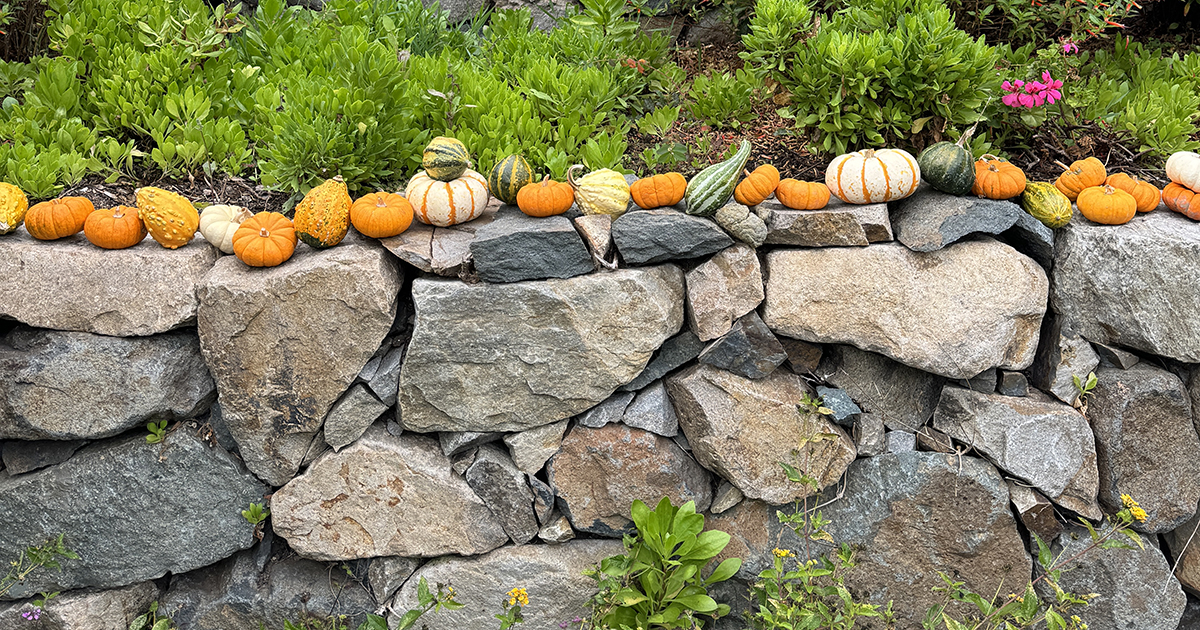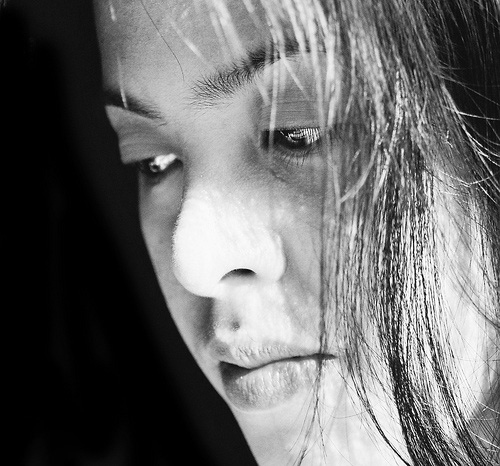
The most powerful changes happen when we decide to take control of what we do have power over, instead of craving control over what we do not.
Holding on is hard. Holding on contributes to stress, unhappiness, relationship problems, and so much more. Yet, as human beings, we cling desperately to almost everything…
- We don’t like change, so we hold on tight to the past.
- We want life to be the way we think it “should” be.
- We get attached to our ideals even when they hurt us.
Over the past 15 years, as Marc and I have gradually worked with hundreds of coaching clients and live event attendees, we’ve come to understand that the root cause of most human stress is simply our stubborn propensity to hold on to things. In a nutshell, we hold on tight to the hope that things will go exactly as we imagine, and then we complicate our lives to no end when they don’t.
So how can we stop holding on?
By realizing that there’s nothing to hold on to in the first place.
Most of the things we desperately try to hold on to, as if they’re real, solid, everlasting fixtures in our lives, aren’t really there. Or if they are there in some form, they’re changing, fluid, impermanent, or simply imagined in our minds.
Life gets a lot easier to deal with when we understand this.
Imagine you’re blindfolded and treading water in the center of a large swimming pool, and you’re struggling desperately to grab the edge of the pool that you think is nearby, but really it’s not — it’s far away. Trying to grab that imaginary edge is stressing you out, and tiring you out, as you splash around aimlessly trying to holding on to something that isn’t there.
Now imagine you pause, take a deep breath, and realize that there’s nothing nearby to hold on to. Just water around you. You can continue to struggle with grabbing at something that doesn’t exist… or you can accept that there’s only water around you, and relax for a moment, and float.
I challenge you to ask yourself right now:
- What are you desperately trying to hold on to?
- How is holding on like this affecting your life?
Then imagine the thing you’re trying to hold on to doesn’t really exist.
Envision yourself letting go… and just floating.
Think about how that decision could change your life.
For Marc and me, it honestly changed everything! And hundreds of people we’ve worked with over the years have had similar results. Here are some great reasons and ways life changes for the better once we loosen our grip:
1. When we let go, we allow ourselves to make the best of things.
A big part of your ability to be happy and successful in the long run relies on your willingness to let go of what you think your life is supposed to be like right now, sincerely appreciate it for everything that it is, and then make the very best of it. Remember, when you stop worrying about what you can’t control, you have more time and energy to change the things you can control.
2. When we let go, we’re able to use our resources more effectively.
Again, holding on is wanting to control the uncontrollable. Letting go and allowing uncontrollable things to happen, on the other hand, means these uncontrollable things will take care of themselves more naturally, and your needs will also be better met in the process. At the very least, you will have less to do (less to control) and more time and energy to focus on the things that truly matter — the things you actually can control — like some positive and effective daily habits.
3. When we let go, we free our minds from extra worries.
When you are lost in worry it’s easy to mistake your worries for reality, instead of recognizing that they are just thoughts. Do your best to be more mindful. Let your presence expand and your overthinking shrink. Accept what is, let go of what was, and have faith in all the present possibilities.
4. When we let go, we learn more about how life really works.
When you hold on to how things “should” be, you automatically block yourself from the truth. You resist how everything works rather than learning about it. The key is to educate yourself about your present circumstances and then work smarter with what you’ve got. (Note: Marc and I discuss this further in the Adversity chapter of “1,000 Little Things Happy, Successful People Do Differently”.)
5. When we let go, we get to appreciate others for who they are.
It’s about loosening up and learning to appreciate different perspectives, lifestyles, and opinions, even if it means overcoming your ego and opening your mind beyond what’s comfortable. It’s about letting those you care about be unapologetically themselves, and not distorting them to fit your own egotistical idea of who you think they “should” be.
6. When we let go, we’re less distracted by people-pleasing.
How often has your life been driven by the misunderstandings and unfair judgments of others? And how often have these misunderstandings and judgments stressed you out simply because you thought you could control the way everyone sees you? The truth is most people will see what they want to see whether you worry about it or not. It’s time to let go of trying to control how everybody perceives you. It’s time to just do the best you can!
7. When we let go, we allow ourselves to grow and heal.
If someone breaks your heart, it’s not easy to deal with. But you can heal as long as you’re willing to accept the circumstances and then gradually move through them. For example, you may catch yourself thinking, “Why did I ever love him? I should never have given him my heart!” But that’s not a helpful thought. If you didn’t love him, this never would have happened. But you did. That’s reality. And accepting that reality and everything that followed is part of letting it go, and growing from it.
8. When we let go, it gets easier to forgive ourselves.
Ask yourself: Is it possible that all the “bad” or “foolish” things you’ve done have been forgiven and forgotten by almost everyone who matters in your life, except you? The answer is likely yes. Sometimes you’ve just got to look at yourself in the mirror and say, “This did happen. It was bad judgment. It was a mistake. But I’ve grown from it. I was, and I am, worthy of my own love and forgiveness.”
9. When we let go, we get to enjoy more of life’s little surprises.
Life is so full of unpredictable beauty and brilliant little surprises. And sometimes the sudden, unexpected arrival of this beauty is almost too much to handle. Do you know that feeling? When something is just too beautiful? When someone randomly says something or writes something or plays some melody that moves you to the point of tears. Do you really want to miss out on that feeling for the rest of your life? No? Then it’s time to let go of the constant rumination and pay closer attention to the life you’re actually living today.
10. When we let go, we live more gratefully (and gracefully).
To let go is, in part, to be grateful for the experiences that made you laugh, made you cry, and helped you learn and grow. It’s the acceptance of everything you have, everything you once had, and the possibilities that are appearing over the horizon. It’s all about finding the strength to embrace life’s inevitable changes, to trust your own instincts, to learn as you go, to realize that almost every experience has value, and to continue taking positive steps forward.
A Closing Exercise for Breathing and Letting Go…
If you’d like another actionable way to practice letting go (like the opening visualization exercise on “floating”), this quick two-step closing exercise is for YOU:
- As you read these words, you are breathing. Stop for a moment and notice this breath. You can control this breath, and make it faster or slower, or make it behave as you like. Or you can simply let yourself inhale and exhale naturally. There is peace in just letting your lungs breathe, without having to control the situation or do anything about it. Now imagine letting other parts of your body breathe, like your tense shoulders. Just let them be, without having to tense them or control them.
- Now look around the room you’re in and notice the objects around you. Pick one, and let it breathe. There are likely people in the room with you too, or in the same house or building, or in nearby houses or buildings. Visualize them in your mind, and let them breathe.
That’s it. Repeat this two-step exercise as often as you need to. When you let everything and everyone breathe, you just let them be, exactly as they are. You don’t need to control them, worry about them, or change them. You just let them breathe, in peace, and you accept them as they are. This is what letting go is all about. Again, it can be a life-changing practice! (And if you’re looking for even more guidance and practice, this short essay is a great primer on the process of letting go.)
Now it’s your turn…
I hope this short essay brought more awareness to the fact that letting go isn’t impossible for you, and that it isn’t about hiding from life either. It’s about opening up to life and accepting the things you can’t control, so you can learn and grow. Surely it takes some practice, but when you develop the skill of letting go, and practice it daily, you automatically prepare yourself for almost any challenge life might send your way. Thus, it’s time to practice…
But before you go, please leave Marc and me a comment below and let us know what you think of this essay. Your feedback is important to us. 🙂
Which one of the points above resonated the most today?
Also, if you haven’t done so already, be sure to sign-up for our free newsletter to receive new articles like this in your inbox each week.






qladhz
1useaq
7wnuvz